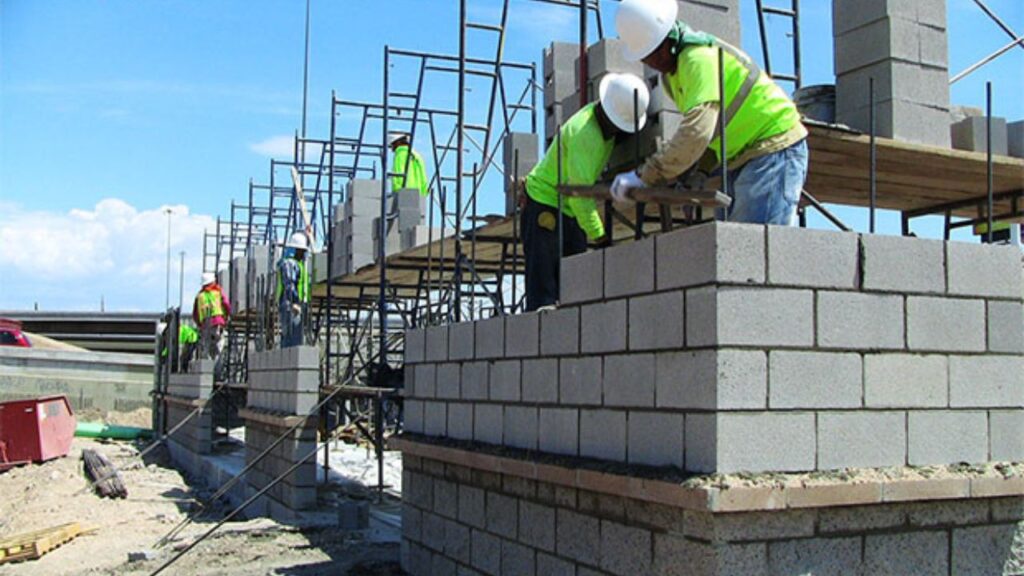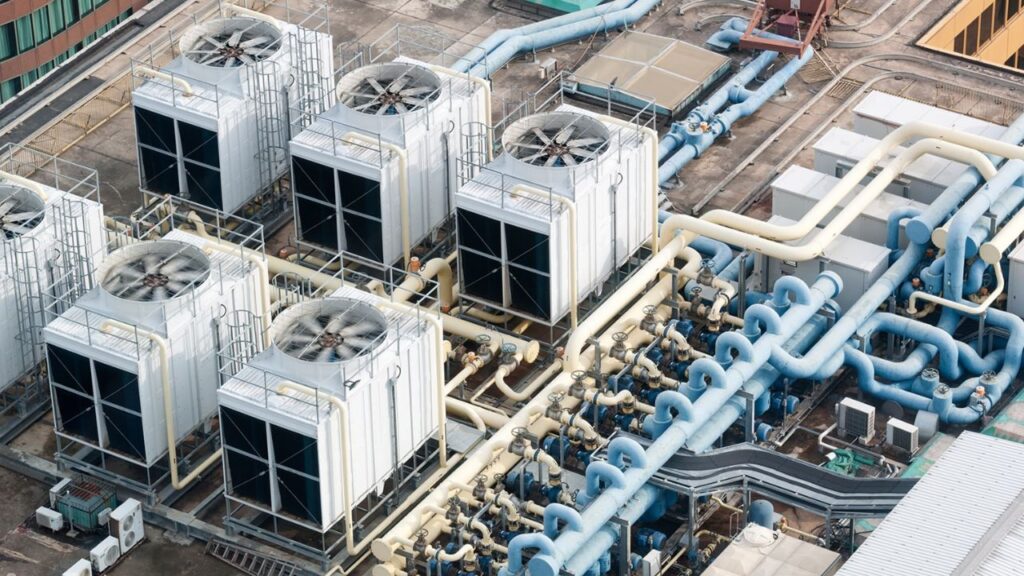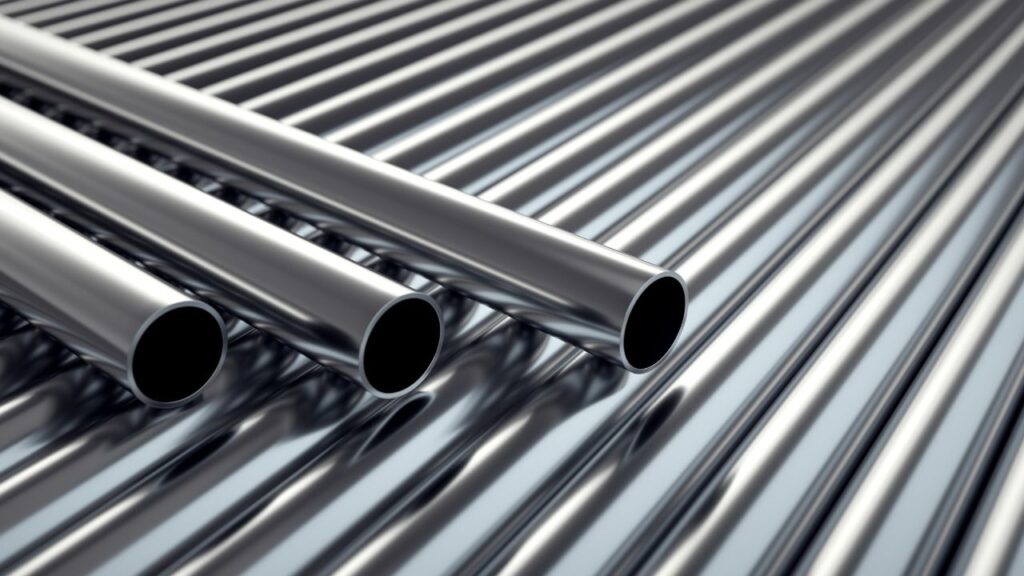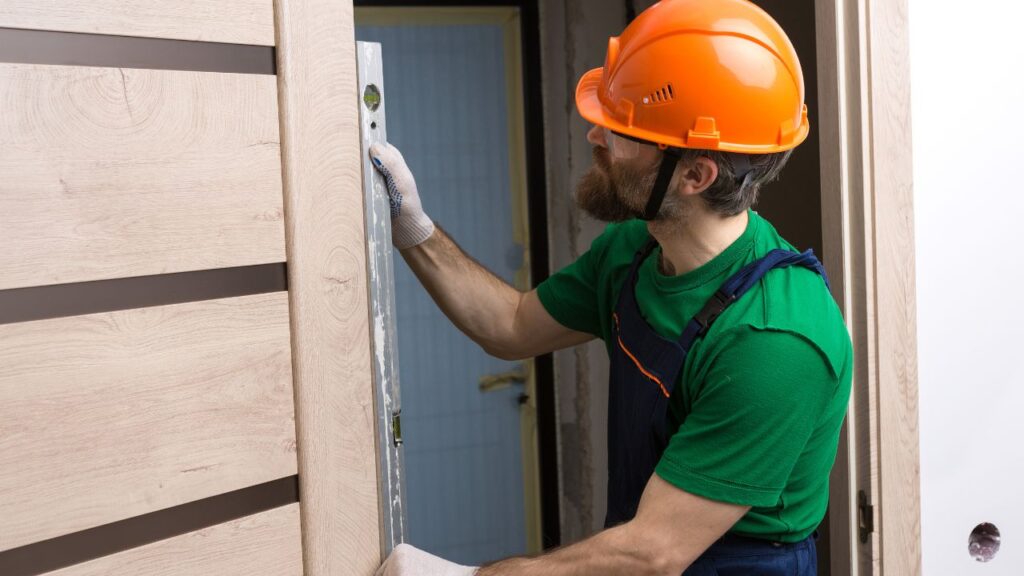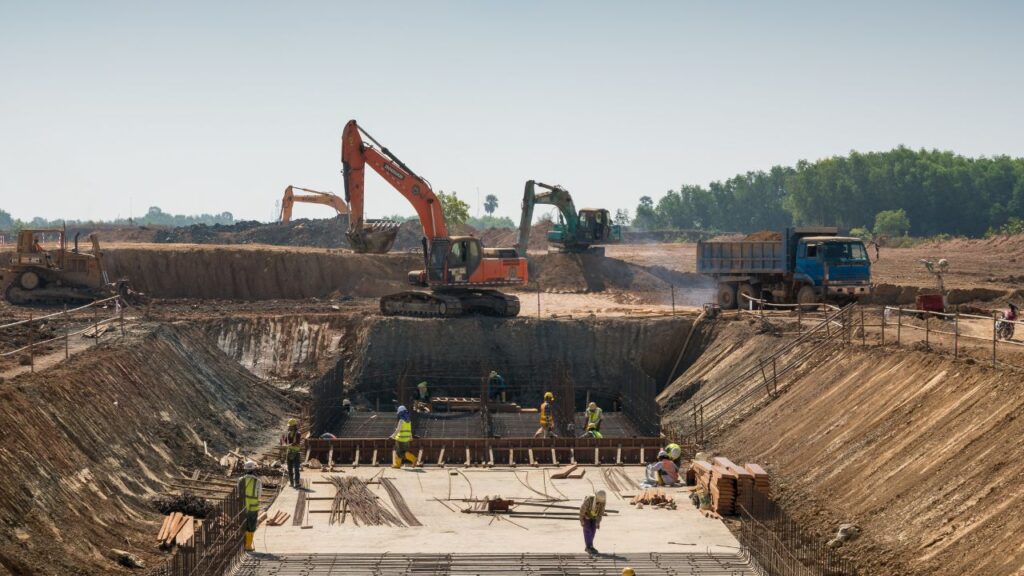- Homepage
- Blogs
Condominium Tower Construction Cost Estimator
Leading provider of condominium tower construction cost estimating.
The cost of constructing a condominium tower depends on various factors such as location, design complexity, materials, and labor. High-rise buildings, for example, require advanced structural engineering, elevators, and enhanced fire safety measures, all of which add to the overall cost. The choice of amenities, like rooftop pools, gyms, and parking garages, also plays a significant role in shaping the budget. Typically, costs for condominium construction in Florida range from $220 to $440 per square foot, with high-end projects exceeding this range.
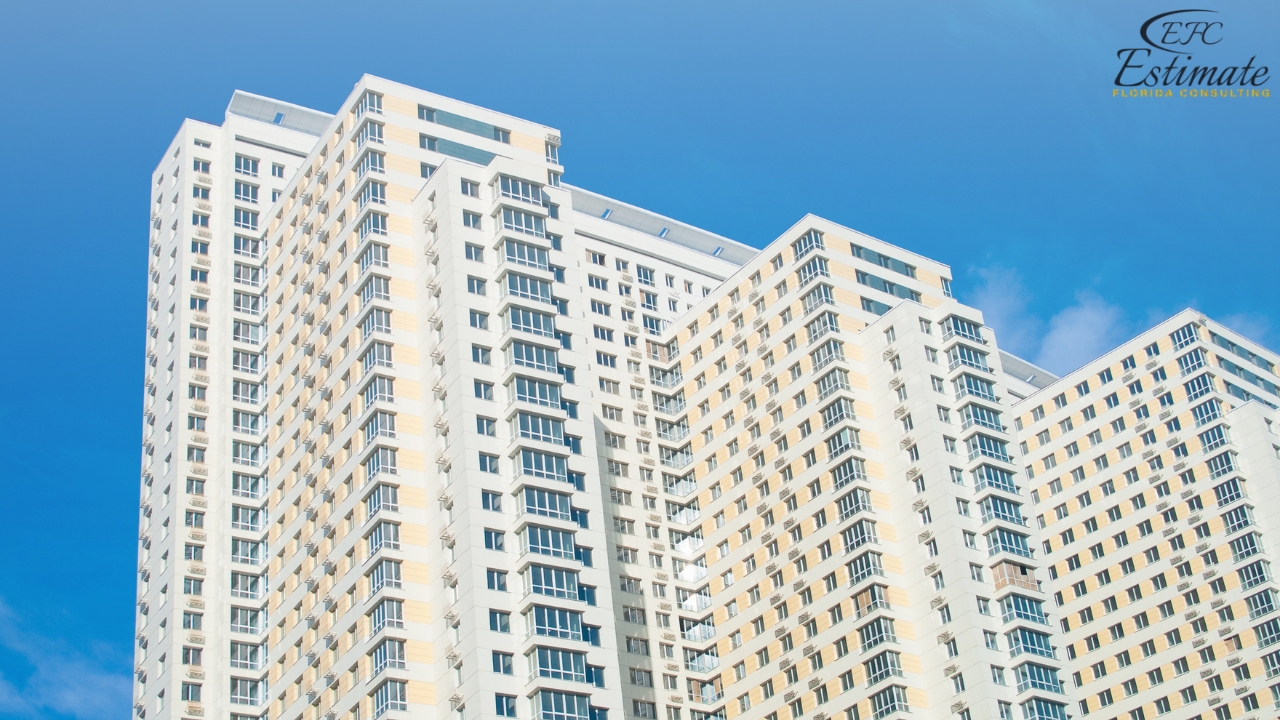
Condominium Construction Cost Per Square Foot
The cost per square foot is a critical metric in estimating the budget for a condominium tower. In Florida, the cost varies based on location, building height, and design complexity.
Type of Construction | Average Cost per Sq. Ft. |
Standard Condominium | $200 – $320 |
Luxury Condominium | $300 – $450 |
High-Rise Condominium | $350 – $500 |
For example, constructing a 150,000 sq. ft. standard condominium tower in Florida would cost between $30 million and $48 million.
Condominium Construction Cost by Unit Size
Unit size plays a significant role in construction costs. Below is an overview:
Unit Size | Average Cost (Per Unit) |
Studio (400-600 sq. ft.) | $80,000 – $200,000 |
1-Bedroom (600-800 sq. ft.) | $120,000 – $320,000 |
2-Bedroom (800-1,200 sq. ft.) | $200,000 – $600,000 |
3-Bedroom (1,200-1,800 sq. ft.) | $300,000 – $900,000 |
Types of Condominium Towers
Low-Rise Condominiums
Low-rise condominiums are smaller buildings, usually under four stories tall, designed for close-knit communities or smaller developments. These condos are often more budget-friendly to build because they require simpler designs and fewer structural reinforcements compared to taller buildings. Low-rise condos are ideal for suburban areas or neighborhoods where zoning laws limit building heights. Construction costs typically range from $180 to $280 per square foot, depending on materials, finishes, and additional features like parking or landscaping.
Mid-Rise Condominiums
Mid-rise condominiums, typically ranging from five to ten stories, strike a balance between affordability and added features. They require more robust structural support and often include amenities such as elevators, fitness centers, or shared lounges. These buildings are popular in urban settings where space is limited but high-rise construction isn’t necessary. Costs for mid-rise condos generally fall between $220 and $360 per square foot, influenced by factors like location, design complexity, and the quality of finishes.
High-Rise Condominiums
High-rise condominiums are tall buildings exceeding ten stories, often found in city centers or prime locations. These buildings offer stunning views, modern architecture, and luxury amenities such as rooftop pools, concierge services, and advanced security systems. Because of their height, high-rises require extensive engineering, advanced safety measures, and durable materials, which significantly increase construction costs. On average, building a high-rise condominium costs between $350 and $500 per square foot, with prices varying based on location, premium materials, and custom features like smart home technology or green building certifications.
Condominium Construction Costs by Story Height
5-Story Condominium Construction
Building a 5-story condominium is a popular choice for suburban neighborhoods or mixed-use developments. These structures often feature residential units with ground-floor retail or parking. The construction process is relatively straightforward, requiring standard building techniques and materials. Costs for a typical 50,000-square-foot building range from $12 million to $18 million, depending on factors like location, design, and finishes. These buildings balance affordability and functionality, making them ideal for growing suburban areas.
10-Story Condominium Construction
Constructing a 10-story condominium involves more complexity due to the need for reinforced foundations, elevators, and additional utility systems to support the larger structure. These buildings often include amenities like fitness centers, rooftop terraces, and secure parking, which add to the overall cost. For a 100,000-square-foot building, construction costs typically range from $28 million to $40 million, depending on design choices and the level of customization. These mid-rise condominiums are common in urban areas where space efficiency is a priority.
20-Story Condominium Construction
A 20-story condominium requires advanced engineering and structural planning to ensure stability and safety. These high-rises often incorporate luxury features such as premium finishes, high-speed elevators, and advanced HVAC systems. With a total area of 200,000 square feet, construction costs typically fall between $70 million and $100 million, influenced by factors like location, material quality, and additional amenities such as swimming pools or concierge services. These buildings are frequently found in metropolitan areas, catering to upscale markets.
30-Story Condominium Construction
Building a 30-story condominium is a significant investment, often requiring state-of-the-art systems, high-quality materials, and advanced technology for energy efficiency and security. These towers, often spanning 300,000 square feet, feature luxury apartments and amenities such as spas, gyms, and private elevators. Construction costs typically range from $120 million to $180 million, reflecting the complexity of the project and the premium nature of the materials and design. These skyscrapers are landmarks in major cities, appealing to high-end buyers and investors.
Cost Breakdown for Building Condominium Towers
Land Acquisition
Acquiring land is often one of the biggest expenses in building a condominium tower, particularly in Florida’s urban hotspots like Miami, Tampa, or Orlando. Land prices vary significantly based on location, zoning regulations, and development potential. In prime areas, costs can range from $2 million to $15 million per acre, with waterfront properties or downtown lots commanding even higher prices. Land acquisition is a critical step, as it sets the foundation for the project’s feasibility and design.
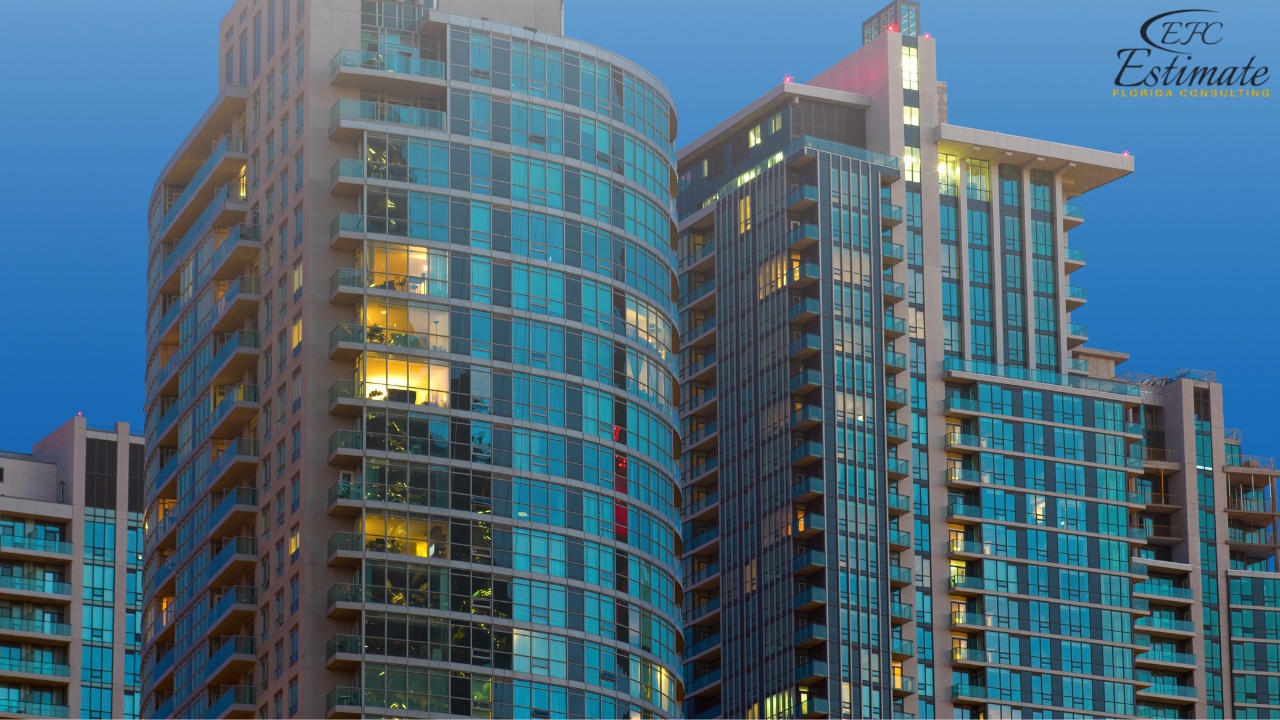
Permits and Legal Fees
Navigating Florida’s legal and regulatory requirements comes with its own costs. Permits and legal fees can range from $50,000 to $500,000, depending on the height, size, and complexity of the building. These fees cover zoning approvals, environmental impact assessments, construction permits, and various inspections required throughout the project. Urban developments or high-rise towers often face stricter regulations, adding to the overall cost.
Design and Architecture
Hiring skilled architects and designers is essential for creating a functional and visually appealing condominium tower. Design and architecture fees typically account for 5% to 15% of the total construction budget. For a project costing $50 million, design expenses can range from $2.5 million to $7.5 million, covering architectural plans, structural designs, and interior layouts. High-end projects often involve renowned firms, which can increase the costs but enhance the tower’s market appeal.
Materials and Labor
Materials and labor represent the largest portion of the construction budget, usually making up 60% to 70% of total costs. Using high-quality materials and hiring skilled workers in Florida can lead to costs ranging from $120 to $300 per square foot, depending on the design and level of customization. Factors like hurricane-resistant construction, energy-efficient systems, and premium finishes can significantly increase expenses but are often essential in Florida’s climate and competitive market.
Amenities and Finishing
Modern condominium towers are known for their luxurious amenities, which can greatly enhance their value. Features such as rooftop pools, state-of-the-art fitness centers, concierge desks, and premium lobby designs can add $2 million to $10 million to the total budget. The scale, quality, and uniqueness of these amenities play a key role in attracting buyers and determining the tower’s market position.
Utility and Infrastructure Costs
Connecting the building to essential utilities, such as water, sewage, electricity, and internet, is another significant expense. Infrastructure costs typically range from $5 million to $15 million, depending on the building’s size, the number of units, and the local infrastructure’s capacity. High-rise buildings often require advanced systems like energy-efficient HVAC setups, backup power supplies, and robust plumbing systems, which can further drive up costs.
Luxury vs. Standard Condominium Construction Costs
Building luxury condominiums is all about catering to high-end buyers who expect premium finishes, cutting-edge technology, and upscale amenities. These features significantly drive up the costs compared to standard condominiums. Luxury towers often include features like marble flooring, custom cabinetry, smart home systems, rooftop pools, and concierge services. Because of these upgrades, the construction cost for luxury condominiums is typically 30% to 50% higher than standard condominiums.
For example, constructing a standard 20-story condominium might cost around $70 million, focusing on functional designs and mid-range materials. In contrast, a luxury 20-story tower of the same size could easily cost $100 million or more, reflecting the premium materials and exclusive amenities that set it apart. This difference highlights how the choice between luxury and standard construction directly impacts the budget and the market appeal of the property.
Win More Projects With Us
Amenities and Their Impact on Costs
Amenities play a huge role in making a property more appealing to buyers or renters, but they can significantly increase construction costs. Here’s a breakdown of common amenities and how much they can add to your budget:
- Swimming Pools: A swimming pool is a highly sought-after feature for residential and commercial properties. The cost can range from $50,000 to $200,000, depending on its size, design, and additional elements like heating systems or landscaping around the pool.
- Fitness Centers: A well-equipped fitness center can attract health-conscious tenants or buyers. Costs for building and outfitting one typically range from $100,000 to $500,000, factoring in the price of quality exercise equipment, interior finishes, and ventilation systems.
- Parking Garages: Parking is often a necessity in urban areas, but it doesn’t come cheap. Building a parking garage costs about $20,000 to $50,000 per space, depending on the type of structure (above ground or underground) and local building requirements.
- Rooftop Decks: Rooftop decks are a trendy feature that can add value to any property. Basic decks cost around $100,000, but more elaborate designs with features like fire pits, outdoor kitchens, or bars can push the price up to $300,000 or more.
Get Acquainted with Estimation
Mastering Bids: 12 Pro-Level Bidding Tips for Construction Managers
Maximize Profits: Budgeting Hacks for Big Construction Projects
Trends in Cost Breakdown of Major Components in Condominium Construction
Condominium Roofing Costs
Roofing a condominium tower requires materials that are not only durable but also energy-efficient to handle weather exposure and reduce energy consumption. Standard roofing materials typically cost between $8 and $15 per square foot, depending on the type of materials used, such as metal, asphalt, or composite roofing. For high-end or specialized roofing systems, such as green roofs or solar-integrated roofs, costs can climb significantly higher. The roofing process also involves additional expenses for insulation, weatherproofing, and labor, making it a critical component of overall construction costs.
Plumbing Costs for Condominium Towers
Plumbing in high-rise condominiums is a complex system, involving an intricate network of vertical and horizontal pipes, drainage systems, fire sprinklers, and high-capacity water heaters. Costs for plumbing range widely, from $30,000 to $150,000 per floor, depending on the size of the tower, the number of units, and the quality of materials used. Advanced plumbing systems may include water-saving fixtures, recirculating pumps, and integrated leak detection systems, which can increase costs but provide long-term efficiency and sustainability.
Electrical Costs for Condominium Towers
Electrical systems in condominium towers are designed to meet the needs of modern living, including wiring, lighting, and smart home automation. Costs typically range from $50,000 to $250,000 per floor, depending on the number of units and their electrical demands. High-rise condominiums often require advanced features such as emergency power systems, energy-efficient LED lighting, and charging stations for electric vehicles, all of which contribute to the overall cost. Electrical safety standards, including surge protection and fire prevention systems, further add to the expenses.
Framing Costs for Condominium Towers
Framing forms the structural backbone of a condominium tower, providing support for floors, walls, and ceilings. Costs range from $15 to $35 per square foot, depending on the materials used. Steel and reinforced concrete are common choices for high-rises due to their strength and durability, but they can be more expensive than traditional wood framing. Additionally, framing costs are influenced by design complexity, labor availability, and local building codes, all of which must be factored into the budget.
Concrete and Structural Costs
Concrete plays a central role in condominium construction, used for foundations, cores, and load-bearing elements. The cost of concrete itself ranges from $120 to $180 per cubic yard, but the total structural costs for a typical high-rise condominium can vary from $1 million to $5 million, depending on the building’s height and design. Advanced features like post-tensioned concrete slabs, which enhance durability and reduce cracking, may increase costs but are often necessary for tall buildings in urban environments.
Drywall and Partitioning Costs
Drywall is used to create partitions within individual units, dividing spaces like bedrooms, living areas, and kitchens. Costs for drywall installation range from $5 to $10 per square foot, depending on the thickness, type, and quality of the materials. Soundproofing or fire-rated drywall may cost more but are often required in condominiums to meet building codes and enhance resident comfort. Labor costs for installation also vary based on the project’s complexity and location.
Flooring Costs in Condominium Construction
Flooring options in condominium construction range from budget-friendly materials to high-end finishes, offering a wide spectrum of costs. Basic materials like vinyl or laminate cost between $2 and $5 per square foot, making them popular for affordable units. Premium materials like hardwood, natural stone, or designer tiles can cost anywhere from $10 to $30 per square foot. The choice of flooring is often influenced by the target market for the condominium, with luxury developments favoring high-end options that enhance aesthetics and durability. Labor, underlayment, and floor preparation costs can also impact the overall expense.
Cost Comparison by City in Florida
The cost of constructing a condominium tower varies widely across Florida cities.
City | Cost per Sq. Ft. |
Miami | $350 – $500 |
Tampa | $320 – $450 |
Orlando | $300 – $400 |
Jacksonville | $280 – $380 |
Tallahassee | $250 – $350 |
Cost Estimation Process for Condominium Towers
Initial Consultation
The cost estimation process starts with a thorough consultation to understand the project’s details. This step involves discussing the scope, location, design preferences, and overall goals with the client. It sets the groundwork for creating an accurate and realistic budget. By aligning the project vision with the budget expectations early on, the chances of unexpected surprises later in the process are minimized.
Site Assessment
A detailed site assessment is the next step. Experts evaluate the land to identify potential challenges, such as soil conditions, zoning laws, environmental factors, and access to utilities. For example, poor soil quality might require additional foundation work, while strict zoning regulations could impact the building’s design. Addressing these issues during the planning phase can help prevent delays and keep costs under control.
Cost Breakdown Development
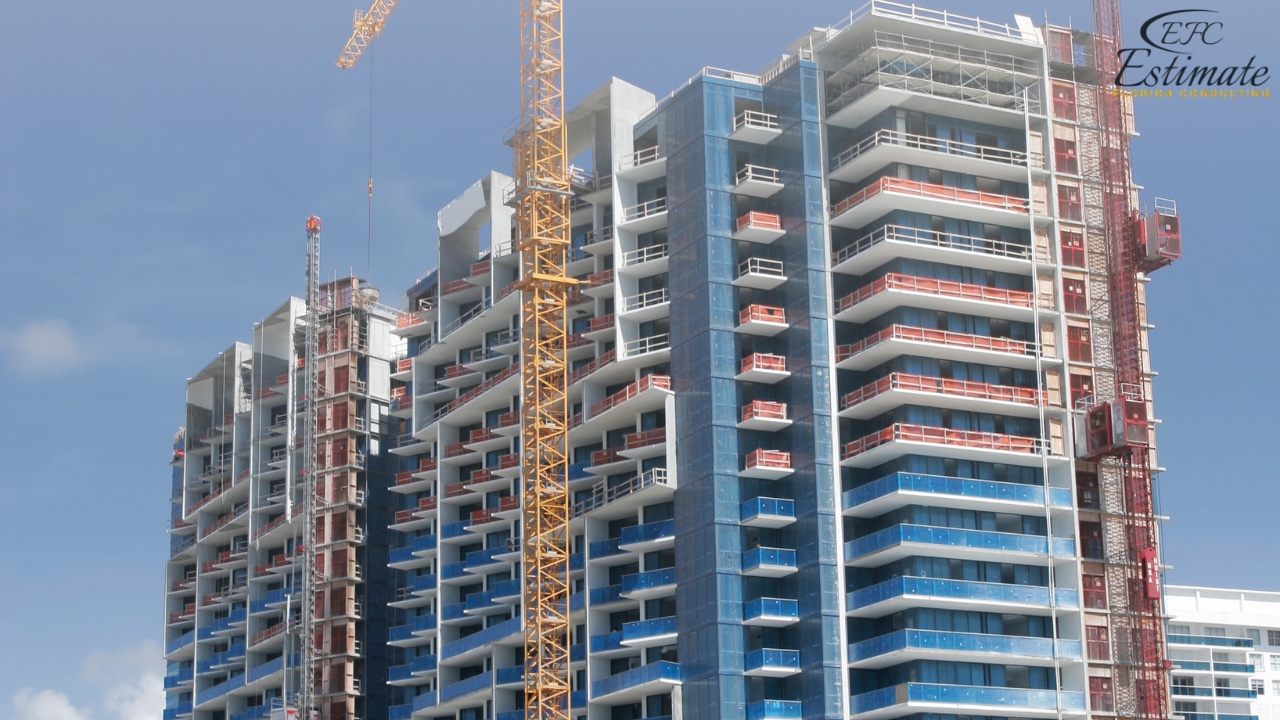
Once the project details and site conditions are clear, a detailed cost breakdown is prepared. This breakdown includes all major expenses, such as land acquisition, permits, materials, labor, and finishing touches like landscaping or interior design. Every item is carefully calculated to ensure transparency and provide a clear picture of where the money will be spent. This step also allows stakeholders to identify areas where costs can be optimized without compromising quality.
Finalizing the Budget
With all factors accounted for, the final budget is developed. This includes a contingency allowance—usually around 5% to 10% of the total project cost—to cover unexpected expenses, such as material price increases or weather-related delays. Once the budget is finalized and approved, it serves as a roadmap for the construction phase, ensuring the project stays on track financially and meets its goals.
Trends in Condominium Tower Construction
Smart Technology Integration
Modern condominium towers are increasingly incorporating smart technology to enhance convenience and efficiency. This includes features like smart thermostats, voice-controlled lighting, and keyless entry systems. These technologies allow residents to control their homes remotely, offering a seamless and connected living experience that appeals to tech-savvy buyers.
Sustainable Materials
There is growing demand for eco-friendly construction materials as developers prioritize reducing the environmental impact of their projects. Trends include using recycled materials, energy-efficient windows, and sustainably sourced wood. Green certifications and energy-efficient designs are becoming key selling points, appealing to environmentally conscious buyers and helping developers meet stricter regulations.
Luxury Amenities
High-end amenities are becoming a standard expectation in modern condominium towers. Developers are focusing on creating spaces that elevate the living experience, such as spa rooms, rooftop pools, co-working spaces, and fitness centers with state-of-the-art equipment. Additionally, features like EV charging stations and pet-friendly facilities are being integrated to meet the diverse needs of residents, making these properties more attractive to potential buyers.
Download Template For Condominium Tower Construction Project Breakdown
- Materials list updated to the zip code
- Fast delivery
- Data base of general contractors and sub-contractors
- Local estimators

Conclusion
Constructing a condominium tower in Florida is a significant financial and logistical undertaking. By understanding the costs associated with various components and phases, developers and contractors can make informed decisions that align with their goals and budgets. At Estimate Florida Consulting, we provide detailed and accurate cost estimates tailored to the unique requirements of condominium projects, ensuring your vision becomes a reality.
Frequently Asked Question
The cost depends on various factors, including location, design complexity, building height, materials used, labor costs, and the type of amenities included, such as swimming pools, gyms, and parking garages. Additional factors like land acquisition and permits also play a significant role.
- Standard Condominiums: $200 - $320 per square foot
- Luxury Condominiums: $300 - $450 per square foot
- High-Rise Condominiums: $350 - $500 per square foot
For a 150,000 sq. ft. standard condominium tower, the cost ranges between $30 million and $48 million.
- Studio (400-600 sq. ft.): $80,000 - $200,000
- 1-Bedroom (600-800 sq. ft.): $120,000 - $320,000
- 2-Bedroom (800-1,200 sq. ft.): $200,000 - $600,000
- 3-Bedroom (1,200-1,800 sq. ft.): $300,000 - $900,000
- Low-Rise Condominiums: $180 - $280 per square foot
- Mid-Rise Condominiums: $220 - $360 per square foot
- High-Rise Condominiums: $350 - $500 per square foot
For a 10-story, 100,000 sq. ft. condominium tower, costs typically range from $28 million to $40 million, depending on design and amenities.
- Land Acquisition: $2 million to $15 million per acre
- Permits and Legal Fees: $50,000 to $500,000
- Design and Architecture: 5% to 15% of the total budget
- Materials and Labor: 60% to 70% of the total budget
- Utilities and Infrastructure: $5 million to $15 million
- Amenities and Finishes: $2 million to $10 million
Amenities like swimming pools, fitness centers, and parking garages significantly increase construction costs. For example:
- Swimming Pools: $50,000 - $200,000
- Fitness Centers: $100,000 - $500,000
- Parking Garages: $20,000 - $50,000 per space
Key trends include:
- Smart Technology Integration: Features like smart thermostats and keyless entry.
- Sustainable Materials: Energy-efficient windows, recycled materials, and green certifications.
- Luxury Amenities: Rooftop pools, co-working spaces, and EV charging stations.
- Insulation: $4.80–$19.20 per sq. ft.
- Roof installation: $6,000–$54,000
- Plumbing installation: $1,800–$18,000
- Flooring: $1,860–$6,000
Comprehensive Trade-Specific Estimates
At Estimate Florida Consulting, we offer detailed cost estimates across all major trades, ensuring no part of your project is overlooked. From the foundation to the finishing touches, our trade-specific estimates provide you with a complete and accurate breakdown of costs for any type of construction project.

Testimonials
What Our Clients Say
We take pride in delivering accurate, timely, and reliable estimates that help contractors and builders win more projects. Our clients consistently praise our attention to detail, fast turnaround times, and the positive impact our estimates have on their businesses.
Estimate Florida Consulting has helped us win more bids with their fast and accurate estimates. We trust them for every project!

Steps to Follow
Our Simple Process to Get Your Estimate
01
Upload Plans
Submit your project plans, blueprints, or relevant documents through our online form or via email.
02
Receive Quotation
We’ll review your project details and send you a quote based on your scope and requirements.
03
Confirmation
Confirm the details and finalize any adjustments to ensure the estimate meets your project needs.
04
Get Estimate
Receive your detailed, trade-specific estimate within 1-2 business days, ready for your project execution.





